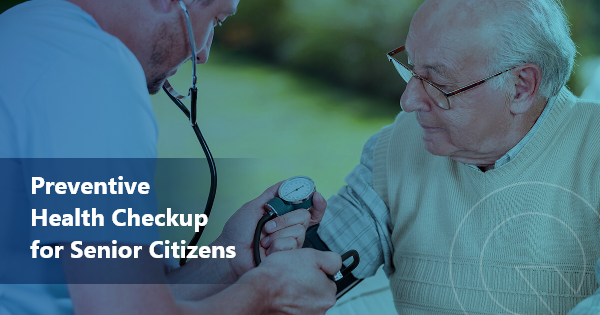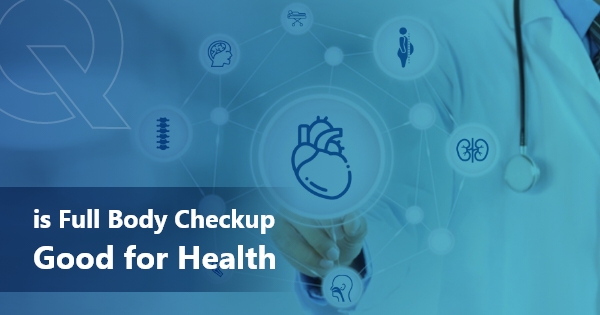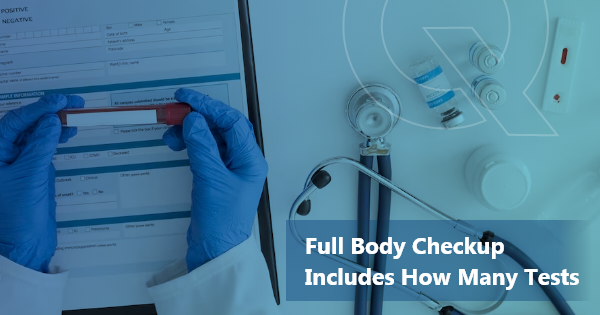Ageing is a natural part of life, accompanied by a myriad of changes in physical, mental, and emotional well-being. For senior citizens, proactive healthcare becomes paramount to maintaining a high quality of life. Preventive health checkups tailored to their unique needs play a crucial role in early detection and management of age-related conditions. This article explores the significance of preventive health checkups for senior citizens, emphasizing the benefits of timely intervention and holistic care.
I. The Importance of Preventive Health Checkups for Senior Citizens
A. Shifting Healthcare Focus
As individuals age, healthcare needs evolve. Preventive health checkups pivot towards early detection, management, and prevention of age-related conditions, ensuring seniors lead healthy, active lives.
B. Addressing Age-Related Health Concerns
Senior citizens are susceptible to a range of age-related conditions, including heart disease, osteoporosis, diabetes, and cognitive decline. Regular checkups facilitate early diagnosis and intervention, mitigating potential complications.
II. Key Components of Preventive Health Checkups for Senior Citizens
A. Comprehensive Physical Examination
A thorough physical examination by a healthcare provider is the cornerstone of preventive health checkups. This includes assessments of vital signs, joint flexibility, muscle strength, balance, and sensory functions.
B. Blood Pressure Monitoring
Hypertension is a common concern for seniors. Regular blood pressure checks help identify and manage high blood pressure, reducing the risk of heart disease and stroke.
C. Blood Tests and Diagnostic Screening
1. Lipid Profile: Evaluates cholesterol levels, a crucial indicator of cardiovascular health.
2. Blood Glucose Levels: Monitors for diabetes or prediabetic conditions.
3. Complete Blood Count (CBC): Assesses overall health and identifies anemia or infections.
D. Bone Density Scan (DEXA)
A DEXA scan measures bone density, aiding in the early detection and management of osteoporosis, a condition prevalent among seniors.
E. Vision and Hearing Tests
Regular vision and hearing assessments are essential for maintaining sensory health and addressing age-related changes in vision and hearing.
III. Cognitive Health Assessment
A. Memory and Cognitive Function Tests
As cognitive decline is a concern for many seniors, specialized assessments can detect early signs of conditions like Alzheimer’s disease or mild cognitive impairment.
B. Mental Health Screening
Senior citizens may face challenges related to mental health. Screenings for depression and anxiety disorders are crucial for early intervention and appropriate care.
IV. Immunizations and Vaccinations
A. Influenza (Flu) Vaccine
Annual flu vaccinations are recommended for seniors to reduce the risk of severe complications associated with influenza.
B. Pneumococcal Vaccines
These vaccines protect against pneumonia and its complications, which can be particularly serious for seniors.
C. Shingles Vaccine
The shingles vaccine helps prevent or reduce the severity of shingles, a painful condition caused by the reactivation of the chickenpox virus.
V. Cancer Screenings
A. Mammograms
For senior women, regular mammograms are vital in detecting breast cancer at an early, more treatable stage.
B. Colorectal Cancer Screening
Screenings like colonoscopies or fecal occult blood tests aid in the early detection of colorectal cancer, which becomes more common with age.
C. Prostate Cancer Screening
Prostate-specific antigen (PSA) tests and digital rectal exams (DREs) are essential tools for monitoring prostate health in senior men.
VI. Lifestyle and Wellness Counseling
A. Nutritional Guidance
A balanced diet is crucial for maintaining health in seniors. Nutritionists can provide personalized dietary recommendations.
B. Exercise and Physical Activity
Physical activity is essential for maintaining mobility, strength, and overall well-being. Tailored exercise programs can help seniors stay active and reduce the risk of falls.
C. Medication Management
Reviewing and managing medications helps prevent adverse interactions, ensuring seniors receive the full benefit of their prescribed treatments.
VII. Social and Emotional Well-being
A. Social Support and Engagement
Maintaining a strong social network is important for mental and emotional well-being. Preventive health checkups provide opportunities to discuss any social or emotional concerns.
B. Stress Management and Mental Health Support
Learning and implementing stress management techniques can enhance overall emotional well-being, reducing the risk of mental health issues.
VIII. Regular Follow-ups and Health Monitoring
A. Continuity of Care
Regular follow-up appointments ensure that any identified issues are addressed promptly, providing continuity of care for seniors.
B. Ongoing Health Monitoring
Preventive health checkups establish a baseline for senior health. Subsequent checkups allow healthcare providers to monitor changes and intervene as necessary.
IX. Tailoring Preventive Health Checkups to Individual Needs
A. Recognizing Diversity in Senior Health
Senior citizens are a diverse group with varying health needs. Preventive health checkups should be individualized based on factors such as age, gender, family history, and lifestyle.
B. Communicating Preferences and Concerns
Open communication between seniors and healthcare providers is essential for tailoring checkups to their specific needs, addressing any preferences or concerns they may have.
Conclusion: Nurturing Wellness in Senior Years
Preventive health checkups for senior citizens are not just medical appointments; they are proactive steps towards a life of wellness, vitality, and fulfillment. By addressing a wide range of health aspects, from physical well-being to cognitive health and emotional balance, these checkups provide seniors with the tools to navigate the aging process with confidence and grace.
Moreover, they foster a strong partnership between seniors and their healthcare providers, allowing for personalized care and tailored recommendations. Through regular checkups, seniors can take charge of their health, making informed decisions and enjoying their golden years to the fullest.
Remember, the journey towards a healthier, happier senior life doesn’t end with a single checkup. It’s an ongoing commitment to wellness, involving regular follow-ups, lifestyle adjustments, and a proactive approach to health. By embracing preventive care, seniors can cherish their later years as a time of vibrancy, connection, and a continued pursuit of well-being. Here’s to a future filled with health, joy, and the richness that comes with a life well-lived.





